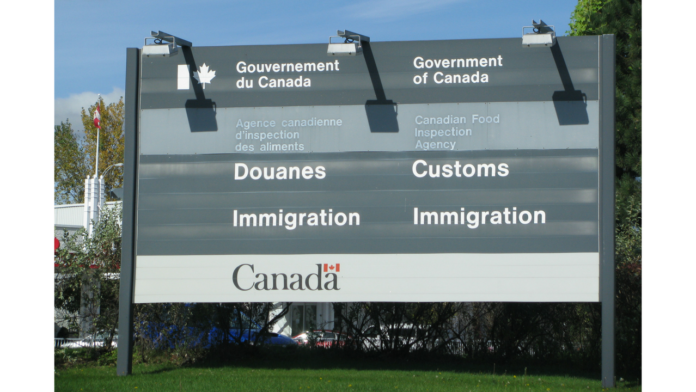Fear of deportation is causing some Somalis with criminal records to head for the Canadian border, according to a new report from Global News.
A Canada Border Services Agency (CBSA) intelligence brief from January 2016 obtained by Global News shows an increase in Somali nationals with criminal records crossing the border into Canada. According to the report, 16 Somalis with “serious” criminal records crossed the border into Canada between 2012 and 2015. Of the 16, 11 had criminal records in Minnesota. Most of the asylum seekers crossed the border near Emerson, Manitoba.
The CBSA believes the asylum seekers are attempting to avoid deportation by U.S. immigration authorities by claiming refugee protection in Canada. Somali deportations began to rise under former President Barack Obama during the same time Canada saw an increase of asylum seekers with criminal records. According to data from the U.S. Department of Immigration and Customs Enforcement (ICE), 65 Somalis were deported in 2014, 120 in 2015, and 198 in 2016.
The number of deportations has continued to increase under President Donald Trump. As of early May 2017, about half way through the fiscal year, 259 Somalis had been deported. Of the 259, 80 were deported from the St. Paul ICE office. About one quarter of those deported have criminal records.
The CBSA intelligence report does not reveal data for 2017, however, border patrol officers in Emerson, Manitoba have reported a significant increase of asylum seekers with criminal records. Jean-Pierre Fortin, National President of the Customs and Immigration Union in Manitoba, told CBC News border officers in Emerson estimate as many as 50 percent of asylum seekers have a “serious criminality record.”
As Alpha News previously reported, Canada is seeing an influx of refugees that once found a home in Minnesota. Reuters reports nearly 3,500 have walked into Canada from the U.S. between January through May of this year. Most of the illegal border crossings happen on the Minnesota-Canada border, with the asylum seekers braving the bitter Minnesota winter to escape the country.
Asylum seekers have to avoid official border crossings because of the U.S.-Canada Safe Third Country Agreement. Under this agreement, people seeking asylum must apply for refugee status in the first safe country they arrive in. Immigrants showing up at the Canadian border would be told to apply for refugee status in the U.S. and turned away. However, if immigrants cross the border illegally and are arrested by Canadian officials, they can apply for refugee status and their case will often be heard.

















